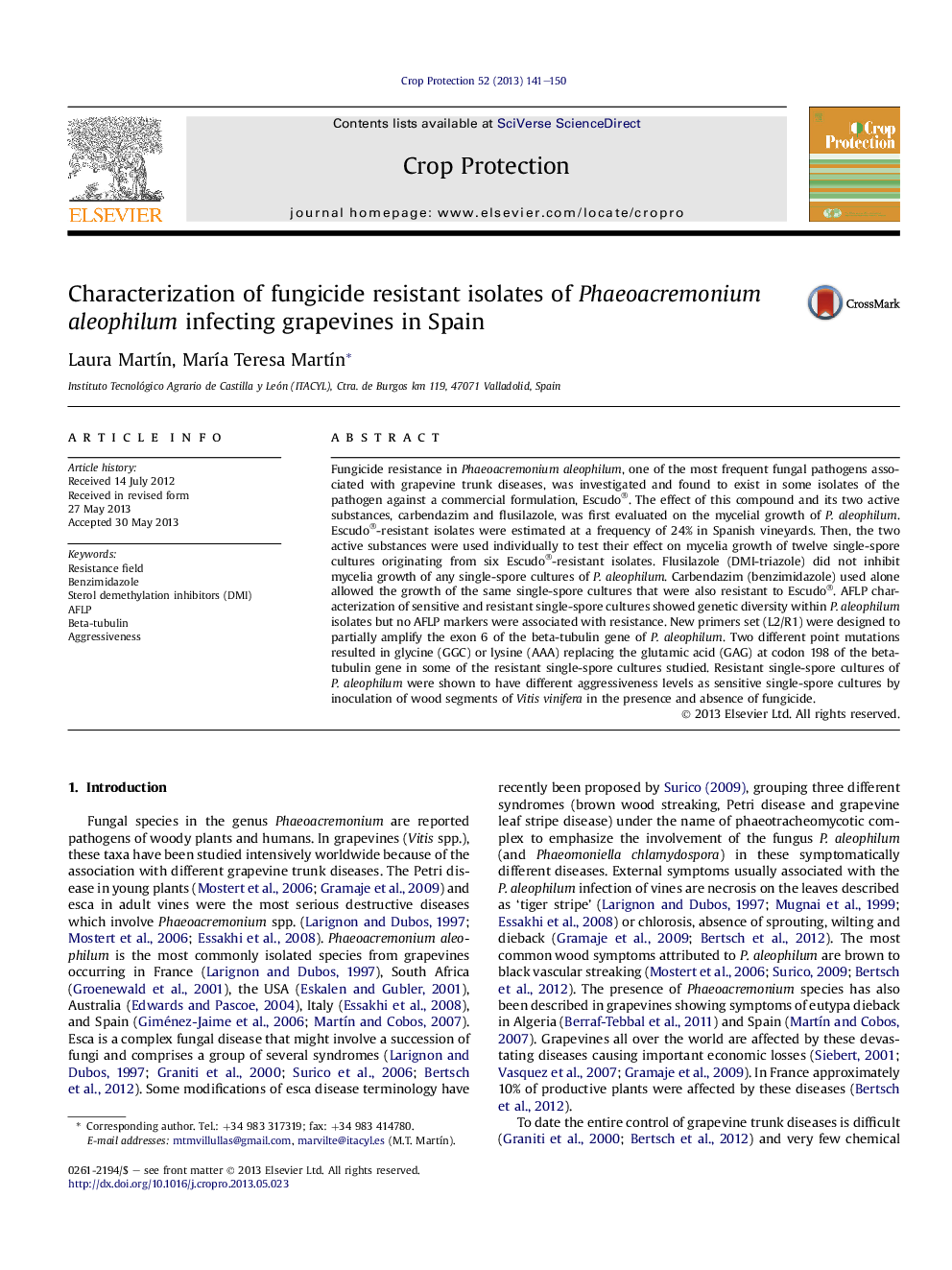| Article ID | Journal | Published Year | Pages | File Type |
|---|---|---|---|---|
| 6373860 | Crop Protection | 2013 | 10 Pages |
â¢This is the first report of carbendazim and flusilazole resistance in Phaeoacremonium aleophilum isolated from Spanish vineyards.â¢No AFLP markers were associated with resistant P. aleophilum single-spore cultures.â¢Two different point mutations at codon 198 of the beta-tubulin gene were found in some resistant single-spore cultures.â¢All P. aleophilum single-spore cultures were able to infect wood of Vitis vinifera without fungicide.â¢Only resistant single-spore cultures showed high severity on wood segments previously impregnated with Escudo®.
Fungicide resistance in Phaeoacremonium aleophilum, one of the most frequent fungal pathogens associated with grapevine trunk diseases, was investigated and found to exist in some isolates of the pathogen against a commercial formulation, Escudo®. The effect of this compound and its two active substances, carbendazim and flusilazole, was first evaluated on the mycelial growth of P. aleophilum. Escudo®-resistant isolates were estimated at a frequency of 24% in Spanish vineyards. Then, the two active substances were used individually to test their effect on mycelia growth of twelve single-spore cultures originating from six Escudo®-resistant isolates. Flusilazole (DMI-triazole) did not inhibit mycelia growth of any single-spore cultures of P. aleophilum. Carbendazim (benzimidazole) used alone allowed the growth of the same single-spore cultures that were also resistant to Escudo®. AFLP characterization of sensitive and resistant single-spore cultures showed genetic diversity within P. aleophilum isolates but no AFLP markers were associated with resistance. New primers set (L2/R1) were designed to partially amplify the exon 6 of the beta-tubulin gene of P. aleophilum. Two different point mutations resulted in glycine (GGC) or lysine (AAA) replacing the glutamic acid (GAG) at codon 198 of the beta-tubulin gene in some of the resistant single-spore cultures studied. Resistant single-spore cultures of P. aleophilum were shown to have different aggressiveness levels as sensitive single-spore cultures by inoculation of wood segments of Vitis vinifera in the presence and absence of fungicide.
